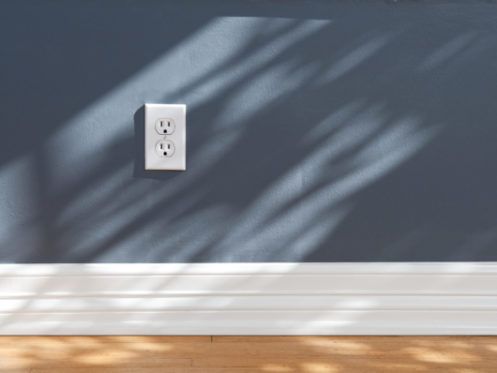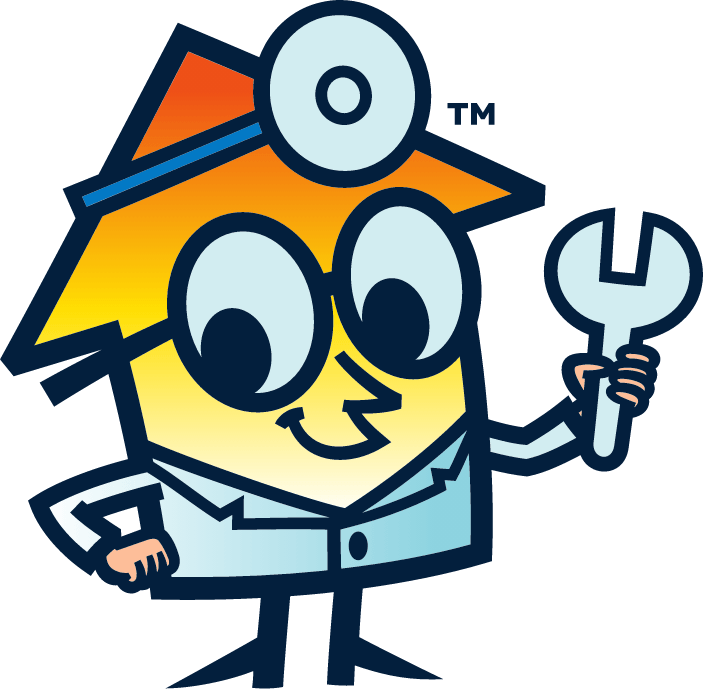Whether you’ve been unsuccessfully trying to plug in a kitchen appliance or an electronic device for work, you’ve realized that one or more of the outlets in your home are not working. A broken outlet could be a simple fix, or the issue could pose a major electrical hazard to you and your loved ones. Understanding the reasons why this problem might be happening can help you to decide on your next move to get the situation resolved.
Faulty Appliance
The first step is to consider if anything is wrong with the appliance, as the problem might not actually be with the outlet itself. In some cases, you may need to hit the reset button on the appliance. In other situations, the appliance could be a safety hazard to continue attempting to use. An easy way to determine if the appliance is at fault is to plug another appliance into the outlet to see if it works.
Type of Outlet
Ground fault circuit interrupters, commonly referred to as GFCIs, are types of outlets that shut off in response to possible electrocution hazards. You will generally find these outlets in parts of the house where water is frequently used, such as in the kitchen and in the bathroom. Your GFCI outlet may have shut down as a response to a detected hazard. Another type of outlet is an arc faculty circuit interrupter, which is often shortened to AFCI. This type of outlet can detect arc faults, which can lead to fires, and the outlet can shut itself off as a response.
Improper Installation
If you’ve recently moved into a home or had work done on the outlets, the receptacles might have been improperly installed. Also, the wiring could have been incorrectly finished. Instead of tampering with a potentially fatal situation, contact a reliable electrician to diagnose and repair the problem.
Power Outage
One of the most obvious reasons why your outlets might not be working is due to a power outage in the area. Keep in mind that it’s possible for a power outage to affect only part of your home. A major storm, for example, could lead to all of the houses in the neighborhood losing power. Calling the local electrical company can give you an idea as to when the power will be restored.
Power Off to House
If the power is off to your house, then the outlets are not going to work. For example, construction workers may need to turn off the electricity when they are installing new outlets. You should also check outside to see if any work is being done on the electrical poles and wires in the neighborhood. This type of work could interfere with your ability to use the outlets and other electrical devices in your home for the time being.
Construction Error
If you recently had construction done to your home, the team members might have incorrectly installed an outlet. Another possibility is that the workers forgot to turn the electricity back on after completing the work. In the event that a problem with the outlets starts right after construction is completed, consult with the workers to see if a solution can be found.
Turned Off Light Switch
Some outlets are controlled by light switches. In other words, in order for the outlet to work, you have to flip the light switch on. Forgetting to turn on the light switch can be a common error when you move into a new home and are familiarizing yourself with the layout, particularly if you’re unfamiliar with these types of outlets.
Dead or Old Outlet
Simply put, outlets wear out over time. After many years or decades of usage, some of the outlets in your home may no longer be functional. Keep in mind that worn electrical outlets can create a fire hazard. Having older outlets inspected and replaced is necessary even when the outlets aren’t yet causing issues. If an outlet isn’t working, consider the last time that the outlet was replaced. You might realize that the outlet has never been replaced during your time in the home.
Burned Outlet
Small electrical fires can happen in your home’s outlets, and these issues are serious ones. An outlet that isn’t working may have experienced a fire. The fire could have started due to age or malfunctioning parts in the outlet, so this problem needs to be resolved by a qualified electrician immediately. An outlet that is black or brown has likely had a fire and should not be used. Keep in mind that an outlet could have had a fire without showing discoloration.
Broken Parts
As with appliances and other home devices, outlets can break. The outlet might have broken interior parts, causing a loose connection or other issues with supplying energy to your devices.
Bad Wiring
The wiring in the outlets could also be bad and in need of replacement. Faulty wiring could lead to devastating and deadly fires, so this problem is one to get fixed by an electrician right away. If you notice that lights in your house often flicker, the home may have bad wiring.
Tripped Circuit Breaker
The circuit breaker that connects to the outlet could be tripped due to an excess of use or an electrical problem in the area. See if simply switching the breaker back into its proper place will resolve the issue. Properly labeling your circuit breakers is important so that you know which breakers are connected to which outlets.
Short Circuit
Do keep in mind that circuit breakers should not randomly trip. You might have overloaded the circuit, thereby leading to the tripped breaker. However, if you did not, the circuit could have shorted out, which then caused the outlet to malfunction or to stop working entirely. You need a qualified electrician to inspect the issue for safety purposes.
Overloaded Circuit
You might have too many appliances on one line, which could lead to the outlets not working. For example, a refrigerator is supposed to be on its own line. An electrician can determine how to redistribute the electrical load in your home.
Blown Fuse
If you have a fuse box in your home instead of circuit breakers, you might have a blown fuse, which can lead to malfunctioning or inoperable outlets.
Power Surge
A power surge in your home could potentially damage outlets. Power surges can happen for a variety of reasons, such as intense weather conditions or overloading of the circuit. Keep in mind that power surges can destroy expensive appliances too, which is why many people use surge protectors.
Trying to fix outlets yourself can be a dangerous and deadly endeavor. Thermo Direct in Raleigh can safely take care of the work for you and resolve the issue. Our experts also specialize in other electrical upgrades and repairs, such as the installation of ceiling fans and whole-home surge protection. Further, we offer heating and cooling services, including installation, repair, and maintenance. The professionals serve the Triangle Community and surrounding areas. Contact Thermo Direct to schedule an appointment today.







